
Alfonso Cuarón Orozco is a Mexican film director, screenwriter, producer, cinematographer, and editor. His work has received critical acclaim and many accolades. He has been nominated for 10 Academy Awards and won five, including two Best Director awards for Gravity (2013) and Roma (2018). He is the first Latin American director to receive the award for Best Director. He has also received Academy Awards for Best Film Editing for Gravity and Best Cinematography for Roma. Cuarón's other notable films include the family drama A Little Princess (1995), the drama Y Tu Mamá También (2001), the fantasy film Harry Potter and the Prisoner of Azkaban (2004), and the dystopian thriller Children of Men (2006).

Claude Piron, also known by the pseudonym Johán Valano, was a Swiss psychologist, Esperantist, translator, and writer. He worked as a translator for the United Nations from 1956 to 1961 and then for the World Health Organization.
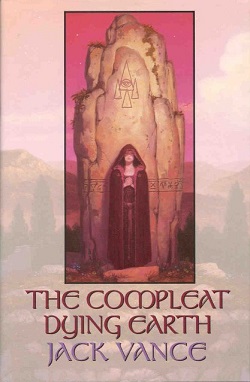
Dying Earth is a fantasy series by the American author Jack Vance, comprising four books originally published from 1950 to 1984. Some have been called picaresque. They vary from short story collections to a fix-up, perhaps all the way to novel.
L. L. Zamenhof developed Esperanto in the 1870s and 80s and published the first publication about it, Unua Libro, in 1887. The number of Esperanto speakers has grown gradually since then, although it has not had much support from governments and international organizations and has sometimes been outlawed or otherwise suppressed.

Since the earliest days of Esperanto, the colour green has been used as a symbol of mutual recognition, and it appears prominently in all Esperanto symbols.
An international auxiliary language or interlanguage is a language meant for communication between people from different nations who do not share a common first language. An auxiliary language is primarily a foreign language.
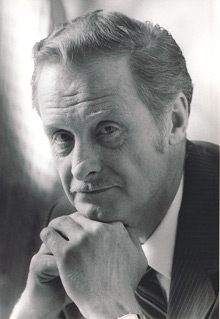
David Eddings was Leigh Eddings' husband and an American fantasy writer. With his wife Leigh, he authored several best-selling epic fantasy novel series, including The Belgariad (1982–84), The Malloreon (1987–91), The Elenium (1989–91), The Tamuli (1992–94), and The Dreamers (2003–06).
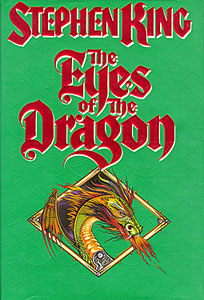
The Eyes of the Dragon is a fantasy novel by American writer Stephen King, first published as a limited edition slipcased hardcover by Philtrum Press in 1984, illustrated by Kenneth R. Linkhauser. The novel would later be published for the mass market by Viking in 1987, with illustrations by David Palladini. This trade edition was slightly revised for publication. The 1995 French edition did not reproduce the American illustrations; it included brand new illustrations by Christian Heinrich, and a 2016 new French version also included brand new illustrations, by par Nicolas Duffaut.
Gormenghast is a fantasy series by British author Mervyn Peake, about the inhabitants of Castle Gormenghast, a sprawling, decaying, gothic-like structure. Originally conceived as a single on-going novel, the series was ended by Peake's death and comprises three novels, Titus Groan (1946), Gormenghast (1950), Titus Alone (1959) and a novella, Boy in Darkness (1956), whose canonical status is debated. Peake was writing a fourth novel, Titus Awakes, at the time of his death, which was later completed and released by Peake's widow in 2009.
References to Esperanto, a constructed language, have been made in a number of films and novels. Typically, this is done either to add the exotic nature of a foreign language without representing any particular ethnicity, or to avoid going to the trouble of inventing a new language. In science fiction, Esperanto is sometimes used to represent a future in which there is a more universally spoken language than exists today.
Anationalism is a term originating from the community of Esperanto speakers. It denotes a range of cosmopolitan political concepts that combine some or all of the following tendencies and ideas:
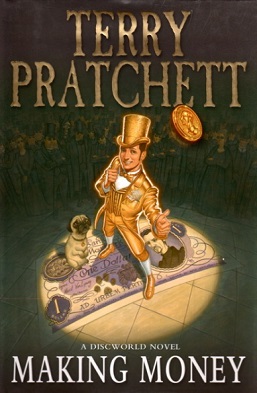
Making Money is a fantasy novel by British writer Terry Pratchett, part of his Discworld series, first published in the UK on 20 September 2007. It is the second novel featuring Moist von Lipwig, and involves the Ankh-Morpork mint and specifically the introduction of paper money to the city. The novel won the Locus Award for Best Fantasy Novel in 2008, and was nominated for the Nebula Award the same year.
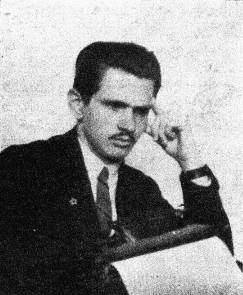
Jan Fethke was a German-Polish film director and, under the pen name Jean Forge, a successful author. He also was a famous proponent of the language Esperanto.

Men Like Gods (1923) is a novel, referred to by the author as a "scientific fantasy", by English writer H. G. Wells. It features a utopia located in a parallel universe.
Like natural languages, the constructed language Esperanto contains profane words and indecent vocabulary. Some of this was formulated out of the established core vocabulary, or by giving specific profane or indecent senses to regularly formed Esperanto words. Other instances represent informal neologisms that remain technically outside the defined vocabulary of the language, but have become established by usage.
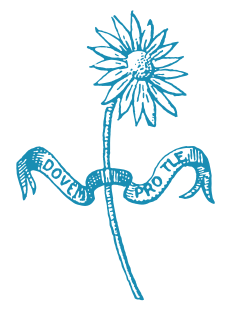
Bolak is a constructed language that was invented by Léon Bollack. The name of the language means both "blue language" and "ingenious creation" in the language itself.
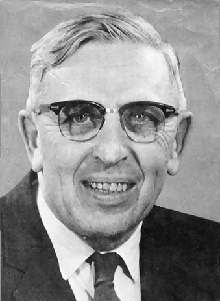
Clifford Donald Simak was an American science fiction writer. He won three Hugo Awards and one Nebula Award. The Science Fiction Writers of America made him its third SFWA Grand Master, and the Horror Writers Association made him one of three inaugural winners of the Bram Stoker Award for Lifetime Achievement.














